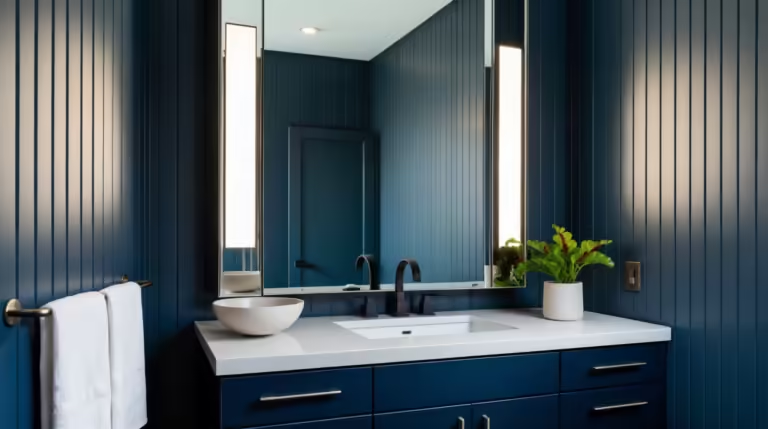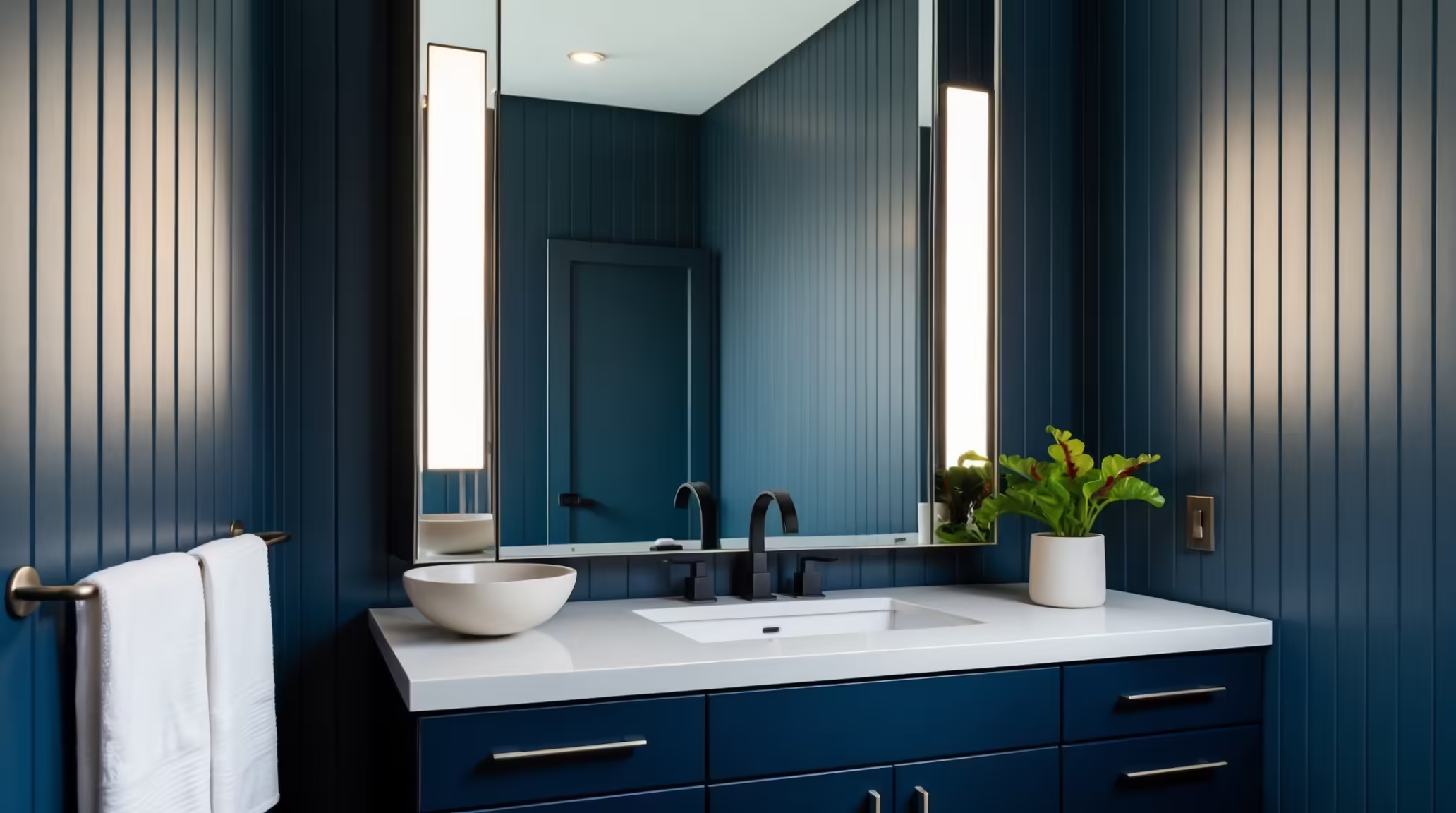When it comes to bathroom design and renovation, the right medicine cabinet is more than just a storage solution—it’s a stylish addition that can transform your space while providing everyday convenience. Whether you’re a homeowner or a design professional, choosing the ideal cabinet involves more than simply picking a mirror with storage; it’s about making a functional, aesthetic choice that aligns with your bathroom’s needs and design. A well-designed cabinet can significantly enhance your bathroom’s overall appeal and integrate seamlessly with your style.
Incorporating a functional and stylish cabinet can greatly improve the efficiency of your bathroom.
Table of Contents
- Why Medicine Cabinets Matter
- Choosing the Right Medicine Cabinet for Your Space
- Types of Medicine Cabinets
- Surface-Mount vs. Recessed
- Measuring and Installing Your Medicine Cabinet
- Top Features to Consider
- Medicine Cabinet Design Ideas
- How to Maximize Storage with Your Medicine Cabinet
- Summary and Key Takeaways
Why Cabinets Matter
Investing in a quality cabinet will not only help you stay organized but also enhance the aesthetic of your bathroom.
Cabinets serve as a blend of utility and style. They’re essential for keeping bathroom necessities organized, providing easy access to daily items, and offering a dedicated mirror space that’s useful for grooming. Beyond function, they add elegance and cohesiveness to the bathroom.
Additionally, incorporating a modern medicine cabinet can optimize your space and improve organization, allowing for easy access to all your essential items.
Remember, the selection of a cabinet should not only focus on style but also on how it serves your day-to-day needs.
Modern cabinets often feature innovative designs that maximize storage and functionality, making them key elements in any bathroom renovation.
With features like lighted mirrors, beveled edges, and mirrored interiors, modern medicine cabinets can do so much more than traditional models. They improve the overall bathroom experience by making it easier to access products, find the right lighting for grooming, and keep counters clear.
Illustrative image suggestion: An image of a sleek, modern medicine cabinet open to reveal an organized interior, showing how it enhances both storage and style.
Choosing the Right Medicine Cabinet for Your Space
Choosing a cabinet that fits the room size, design style, and storage requirements is essential. Here’s how to decide:
Types of Medicine Cabinets
There are several types of medicine cabinets to consider:
- Single Door: Compact and ideal for smaller spaces or bathrooms with less storage needs.
- Double Door: Provides more storage space and works well in larger bathrooms.
- Triple Door: Maximizes storage but requires more wall space, often used in master bathrooms.
Surface-Mount vs. Recessed
Understanding the installation types can help in making the right choice:
- Surface-Mount: These cabinets mount directly on the wall, ideal if wall cutting isn’t an option. They offer flexibility and can easily be added to any bathroom.
- Recessed: For a sleek, streamlined look, recessed cabinets are installed within the wall. This option requires cutting into the wall but creates a more integrated appearance.
Illustrative image suggestion: Diagram showing the differences between surface-mounted and recessed medicine cabinets.
Measuring and Installing Your Medicine Cabinet
Proper measurements are crucial to finding a cabinet that fits well within your space.
Step 1: Measure Your Vanity Width
The cabinet should typically be narrower than or equal to the width of your vanity. A common guideline is for the cabinet to be about the same width as the vanity for a balanced look.
Step 2: Measure the Height
Determine the height by measuring the distance from the faucet to any overhead lights. Allow some clearance above the faucet for functionality and aesthetics.
Step 3: Ensure Proper Depth
Standard depth is around 20 inches, but there are options between 14-18 inches for smaller spaces.
Top Features to Consider
Modern medicine cabinets come with an array of features to suit every preference and need. Here are some popular ones:
- Mirrored Interiors: See your grooming products and yourself simultaneously, making it easier to multitask.
- Lighted Medicine Cabinets: Integrated lighting eliminates shadows, providing optimal brightness for grooming.
- Adjustable Mirrors: A built-in adjustable mirror can slide up or down to accommodate different heights.
- Slow-Close Hinges: Prevents doors from slamming, preserving both the mirror and the items inside.
Ultimately, a thoughtfully selected medicine cabinet can serve as a beautiful focal point in your bathroom.
Illustrative image suggestion: Image of a lighted medicine cabinet with a magnifying mirror attachment for a high-end, functional look.
Cabinet Design Ideas
The look of your cabinet is as important as its functionality. Here are some design options:
Mirror Edges
- Beveled: Adds a classic, polished look with an angled edge.
- Polished Flat: Offers a crisp, modern aesthetic with clean lines.
Framing Options
- Framed Cabinets: These add a decorative touch, available in wood, metal, or other materials that can complement your bathroom’s decor.
- Frameless Cabinets: Often used in modern bathrooms for a minimalist, streamlined appearance.
Custom Finishes
Many manufacturers now offer custom finishes and colors to allow homeowners to match the cabinet with the vanity, fixtures, and other bathroom details.
How to Maximize Storage with Your Medicine Cabinet
An organized cabinet can transform a chaotic bathroom space into an efficient haven. Here’s how to maximize your cabinet’s storage:
- Use Dividers: Add small containers or dividers to separate categories such as skincare, dental, or first-aid items.
- Adjust Shelves: Adjustable shelves can be customized for larger or smaller items, optimizing every inch.
- Label Containers: Label small containers or jars for easy access, especially for frequently used items.
Consider the various styles and functionalities of medicine cabinets to find the perfect one for your needs.
Illustrative image suggestion: Open medicine cabinet with labeled containers and adjustable shelves, showing a tidy, organized layout.
Summary and Key Takeaways
Cabinets are more than just storage—they’re an essential fusion of functionality and style that elevate the bathroom experience. Choosing the right cabinet involves understanding your bathroom’s layout, storage needs, and design preferences. From recessed to surface-mounted, mirrored to framed, there’s a cabinet that can fit seamlessly into any bathroom aesthetic. By measuring accurately, selecting the right features, and organizing well, you can enjoy a clutter-free, visually appealing bathroom with the perfect cabinet.




1 thought on “Medicine Cabinet Magic: Perfecting Bathroom Storage and Style”